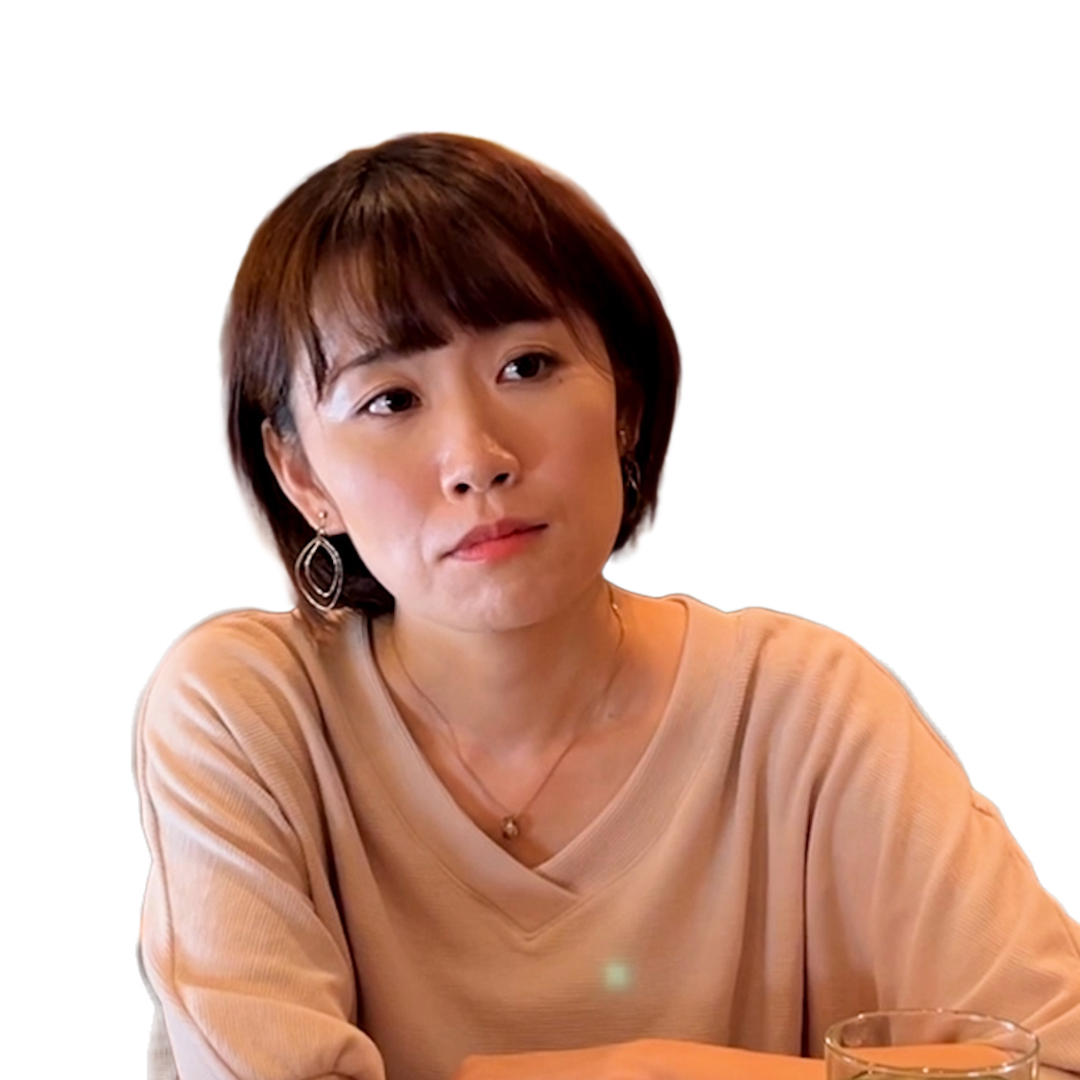ヒロ「最後になんだけど、君、特技に歌ってあるけど。」
ミキ「あ、はい」
さなえ「もしかして、ミキ、うたっちゃったの?」
ミキ「うん、うたったよ。」
さなえ「うたっちゃったの!」
さなえ「あ〜、おわったわ」
(ミキ、「さんぽ」を歌っている)
さなえ「でも、ミキ、今回も残念な結果かもね。」
ミキ「あー、もう辛いよ、さなえさん。 私もう限界きちゃったかも。」
さなえ「何いってんのよ、まだまだ、これからじゃない。 それによかったかもよ。 こんなプロデューサーの仕事しなくて。
オーディションうかっちゃったら、それこそ大変かも。」
さなえ「ごめん。 電話。」
さなえ「はい、もしもし。 はい、 スターライトマネジメントの渡辺です。
はい、私がミキのマネージャーですが。
はい。 え? わかりました。 ご連絡ありがとうございます。」
さなえ「ミキ、オーディション、合格しちゃった。」
ミキ「えー!」
さなえ「主演女優よ、ミキ、主演女優!」
ミキ「嘘みたい。私、夢、かなえちゃった!」
Hiro: “So, at the end, you have singing as your special skill, right?”
Miki: “Ah, yes.”
Sanae: “Could it be that you actually sang, Miki?”
Miki: “Yeah, I sang.”
Sanae: “You sang!”
Sanae: “Ah, it’s over.”
(Miki is singing “Sanpo” [a song])
Sanae: “But Miki, this time might also be disappointing, huh?”
Miki: “Ah, it’s tough, Sanae-san. I might have reached my limit.”
Sanae: “What are you saying? You’ve still got a long way to go. Besides, it’s probably better not to work with a producer like this, so isn’t this for the best? If you were to pass the audition, that could be quite a tough”
Sanae: “Sorry, I have a call.”
Sanae: “Hello? Yes, speaking. Yes, this is Watanabe from Starlight Management. Yes, I’m Miki’s manager. Yes. Huh? I understand. Thank you for letting me know.”
Sanae: “Miki, you passed the audition.”
Miki: “What?!”
Sanae: “Lead actress, Miki, lead actress!”
Miki: “It’s unbelievable. I’ve made my dream come true!”
| 最後に(さいごに) | finally, lastly |
| 特技(とくぎ) | special skill or talent |
| 歌(うた) | singing, song |
| 歌う(うたう) | to sing |
| 言わずにはいられなかった (いわずにはいられなかった) | couldn’t help but say |
| 終わった(おわった) | It’s over |
| 散歩(さんぽ) | stroll, walk. “さんぽ” is the opening theme song of “My Neighbor Totoro.” |
| 残念(ざんねん) | unfortunate, regrettable. |
| 限界(げんかい) | kimit, boundary. |
| 限界にくる(げんかいにくる) | reach one’s limit, hit the limit |
| うかる | to pass (an exam or audition) , to succeed |
| 大変(たいへん) | difficult, tough, hardship |
| スターライトマネジメント | Starlight Management (company name) |
| マネージャー | manager |
| 合格する(ごうかくする) | to pass (an exam or audition) , to succeed |
| 嘘みたい(うそみたい) | It’s unbelievable, It’s incredible |
| かなえる | fulfill, grant |
“〜しちゃった” is a colloquial expression in Japanese that is used to indicate that an action or event happened unintentionally or unexpectedly. It’s often used to convey situations where something unforeseen occurred, or when there’s been a mistake or mishap.
“The stem change due to conjugation is the same as in the past tense.”
表を挿入
Here are some examples of how “〜しちゃった” is used:

うたっちゃったの?
Could it be that you actually sang?
うたう + ちゃった = うたっちゃった

私もう限界きちゃったかも。
I might have reached my limit.
限界くる + ちゃった = きちゃった

オーディションうかっちゃったら、それこそ大変かも。
If you were to pass the audition, that could be quite a tough.
オーディションうかる + ちゃった = オーディションうかっちゃった

オーディション、合格しちゃった。
you passed the audition
合格する + ちゃった = 合格しちゃった

私、夢、かなえちゃった!
I’ve made my dream come true!
夢、かなえる + ちゃった = 夢、かなえちゃった
This expression is commonly used in casual conversations and everyday interactions, especially when talking with friends or people you’re familiar with.

